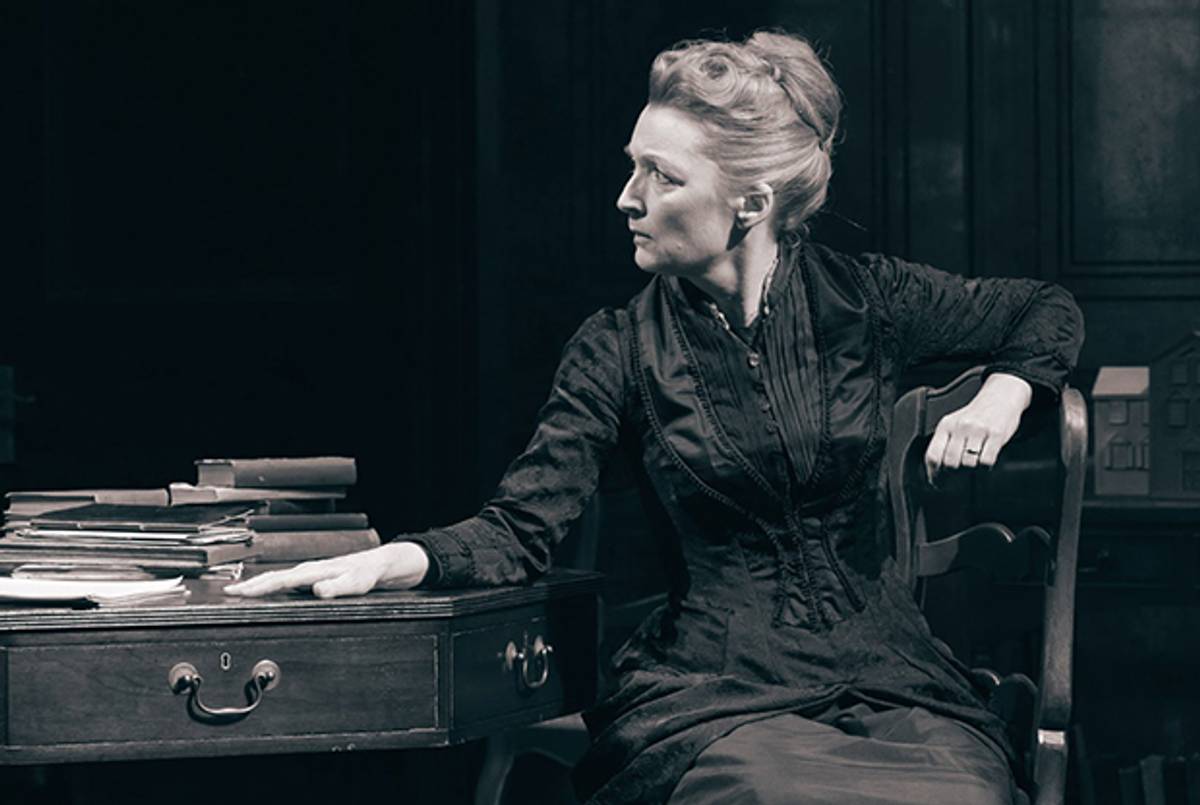
Agunot, literally “chained wives,” are those religiously observant women whose husbands refuse to grant them a get, or a religious divorce. I saw no obvious evidence of these shackles in the audience of Ghosts, a newly opened drama at the Brooklyn Academy of Music, though they were in my head, having just heard about one unfortunate agunah in New Jersey on This American Life.
Written by Henrik Ibsen in 1881, Ghosts tells the story of Helene Alving, a free-thinking wealthy widow in a rural Scandinavian village. In many ways, she too is agunah. Very early in her marriage, Helene, played by the astonishing Lesley Manville, ran away to the divinity student whom she really loved to help her escape a union she knew would be a torture. Her late husband was a drunk and a philanderer; her family forced her to marry him. Yet all those years ago, the student, now the village pastor, persuaded Helene to return home. They rehash the episode, duking out their forceful, still relevant arguments.
The Pastor, played by the brilliant Will Keen (also appearing BBC’s Wolf Hall), admonishes Helene, telling her that he had no choice but to send her back. Her duty was not to her own personal happiness—he practically sneers at that concept. Her duty was to her husband, to her family. That she imagines she’s even entitled to happiness leaves him genuinely agog. Happiness is a trivial, selfish concept for the Pastor who believes that Helene hasn’t any right to claim it. None of us do. The institutions of family and faith are where her, and our, obligations lie. So surefooted was the Pastor in his assertion, I trembled in my seat. Is he right? Is happiness a flimsy, narcissistic goal? Is there something greater and more profound to which we ought to aspire individually and collectively? If so, what is it?
The Pastor’s view is compelling. Were we all to pursue bliss, what would become of tradition? Of faith? But, still: what of those women in religious communities who are caught in disastrous, humiliating unions?
Often, they want to be part of those very communities, in which they’re expected, because they’re women, to cede autonomy and forfeit agency. For those of us not brought up in Orthodoxy the idea of not being in charge of our own lives seems absurd. It’s alien. Enlightened cosmopolitans, we tend to condescend to it.
In Ibsen’s drama, and certainly in this riveting adaptation by director Richard Eyre, the faith that the Pastor has in his system is unflappable. Is he happy, or at least content, in that faith? It’s irrelevant. He’s committed. His point of view—and Helene’s too—articulated by Ibsen more than a century ago still reverberate. The tensions are not nearly ghostly. They are robust and alive.
Related: Get Detective: Meet the Elusive, Intrepid P.I. Who Frees Chained Jewish Women
Facebook, Unchain Me!
Sara Ivry is the host of Vox Tablet, Tablet Magazine’s weekly podcast. Follow her on Twitter@saraivry.